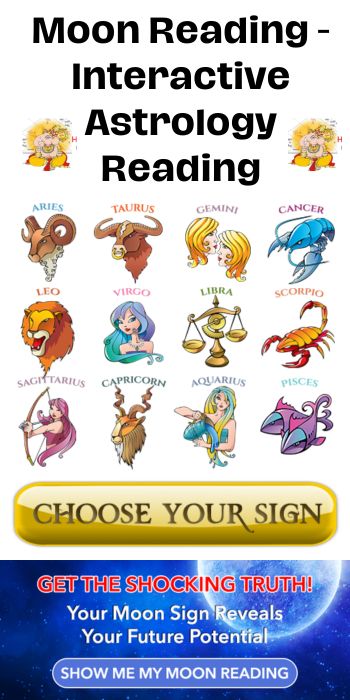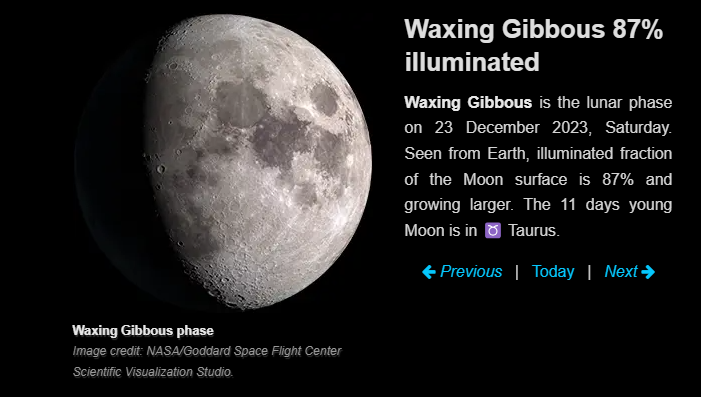Moon phase December 23 2023: The Moon will be in the waxing Gibbous phase. Visible in most of the night sky, setting a few hours before sunrise. This phase is when the Moon is more than 50% illuminated but not yet full. The phase lasts about 7 days and the moon gets brighter day by day until the full moon.
This September full moon is the fourth and final supermoon of 2023. During waxing Gibbous, the Moon rises in the mid-afternoon east and is high in the eastern sky at sunset. The word Gibbous first appeared in the 1 th century and has its roots in the Latin word or a hunchback. Visit the December 2023 Moon Phases Calendar to see all the daily moon phases for this month.
Waxing phase Waxing Gibbous on December 23rd is 87% illuminated.
This is the percentage of the month lit by the Sun. Lighting is constantly changing and can vary up to 10% per day. On December 23, the Moon is 11.27 days old. This indicates how many days have passed since the last new moon. The Moon takes 29.53 days to orbit the Earth and go through all 8 lunar phases.
Waxing Gibbous on 23.12.2023 Saturday Waxing Gibbous 87% Illumination
Waxing Gibbous is the phase of the moon on December 23, 2023, Saturday. Seen from Earth, the illuminated part of the surface of the Moon is 87% and growing. The 11-day young Moon is in ♉ Taurus.
Moon phase on Saturday December 23, 2023
Phase Details For – December 23
Phase: Waxing Gibbous
Illumination: 87%
Moon Age: 11.27 days
The Moon Angle: 0.53
Moon Distance: 376,330.15 km
Sun Angle: 0.54
Sun Distance: 147,143,460.05 km
The current phase of the moon on December 23, 2023 is the waxing glow phase. Today the Moon is 10.69 days old and 87.91% illuminated with a declination of -112.272°. The estimated distance from the Earth to the Moon is 380,633.35 km and the Moon Sign is Taurus.
The phase of the Moon on December 23, 2023 is the Ascending Gibbous phase. This is the phase where the Moon is more than 50% illuminated but not yet 100% illuminated (which would be a full moon). In the northern hemisphere, the right side is illuminated, and in the southern hemisphere, it is the left side that is illuminated.
The Waxing Gibbous phase, like all phases of the Moon, lasts a little over 7 days. The actual length varies due to the elliptical orbit of the Moon. During this waxing gibbous phase, the Moon rises in the east in the mid to late afternoon and is high in the eastern sky at sunset. Assuming a clear night, the waxing moon will be visible for most of the night before sunset just before sunrise.
Related:
Fun Fact: The word Gibbous was first used in the 1 th century and comes from the Latin word gibbosus, which means hunchback.



Leave a Reply